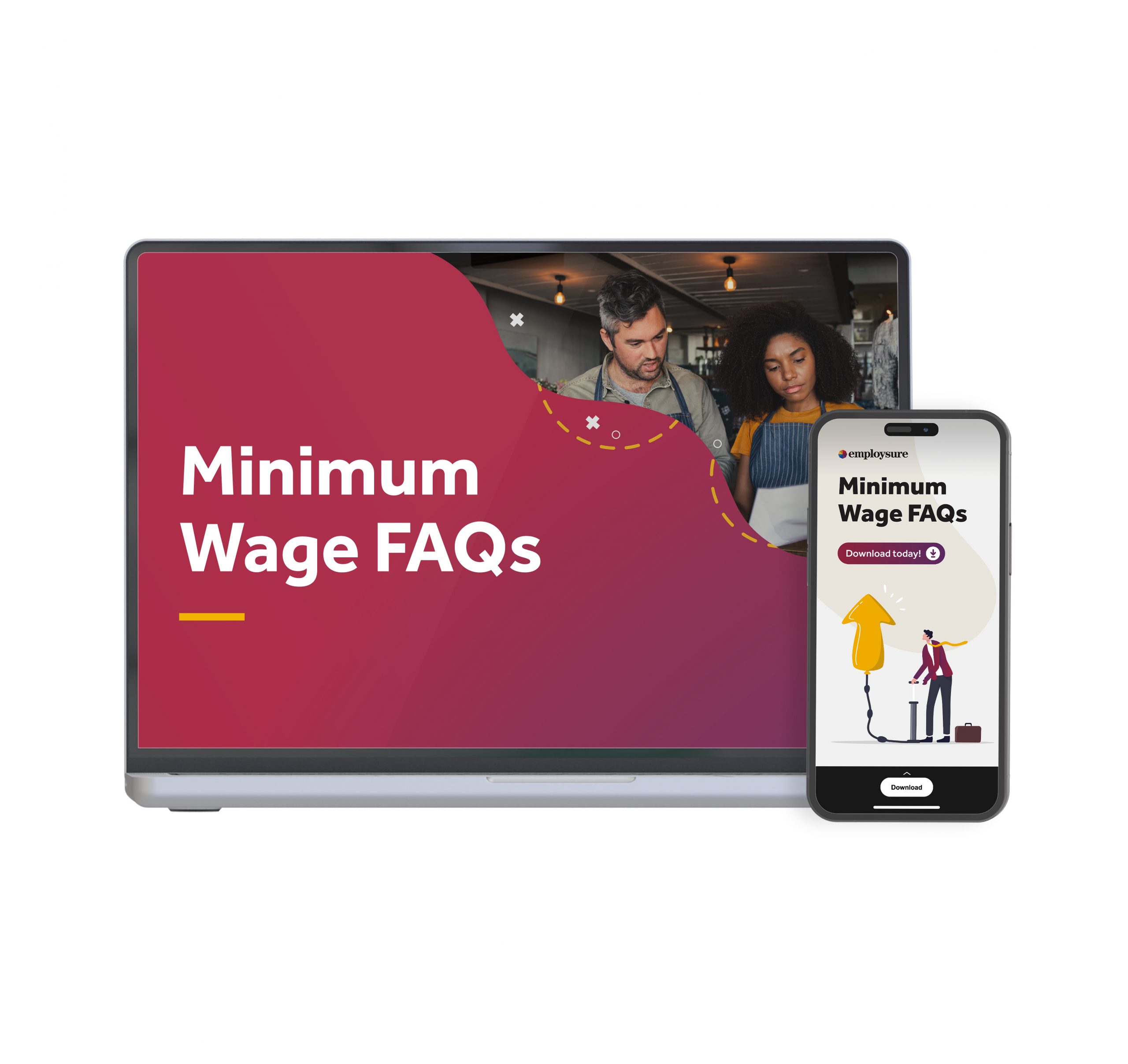
What is overtime pay?
Overtime pay is additional compensation paid to employees for working time beyond their regular working hours. Overtime rates in New Zealand are considered a form of penal rate and are typically higher than an employee’s regular rate of pay. Overtime pay is often calculated based on the employee’s normal hourly rate and is frequently expressed as ‘time-and-a-half’ or ‘double time’.
When do overtime pay rates apply?
There is no legislation in New Zealand enforcing overtime pay, and paying employees an increased rate of pay for working overtime hours is normally optional. Many employers do choose to pay overtime pay rates, mostly because it helps with attracting, motivating and retaining staff.
Overtime pay rates normally apply when employees who earn a wage work more than the hours of a standard work week (40 hours per week). Employees often receive overtime pay for working unsociable hours (evenings, nights, and early mornings), as well as for working on Saturdays and Sundays.
It is very rare for salaried employees to receive an overtime pay rate in New Zealand.
New Zealand workplace law does provide for an increased rate of pay on public holidays, when all staff are entitled to at least time-and-a-half. Employers are free to agree a higher public holiday overtime pay rate with their staff, but never less than the statutory minimum.
Hours of work
A standard work week for a full-time employee in New Zealand is 40 hours (equivalent to 5 8-hour shifts). The Employment Relations Act 2000 sets out the following maximum hours of work for employees in New Zealand:
40 hours per week
8 hours per day
200 hours per month
However, there are exceptions to these limits. For example, employees may work longer hours if they are covered by a collective employment agreement that provides for a larger number of work hours, or if they have agreed to work overtime.
An employment agreement could also contain a clause agreeing that a salaried employee may, from time to time, be required to work a reasonable amount of overtime.
The Employment Relations Authority states that employers must consider the following factors when evaluating whether it is reasonable to require an employee to work overtime:
The employee’s workload
The employee’s health and safety
The employee’s family and social commitments
The needs of the business
In general, it is considered reasonable for employers to require salaried employees to work some overtime, particularly if it is necessary to meet deadlines or to deal with unexpected events. However, employers should not expect salaried employees to work excessive overtime on a regular basis.
Examples of reasonable and unreasonable overtime
The following are some examples of what may be considered reasonable overtime for a salaried employee in New Zealand:
Working an extra hour or two per day to finish a project
Working a few weekends per year to cover for absent colleagues
Working extra hours during peak business periods
The following are some examples of what may be considered excessive overtime for a salaried employee in New Zealand:
Working more than 50 hours per week on a regular basis
Working every weekend
Being required to work overtime without notice or compensation
Overtime pay laws
Overtime pay is not required by law in New Zealand. Employers and employees can agree on an overtime rate, but there is no legal requirement in New Zealand’s employment legislation to do so.
However, when overtime rates are included in employment agreements or collective employment agreements – both of which are legally binding – these rates then become protected by law.
Employment agreements
Overtime rates agreed on between employees and employers must be written into an employment agreement. When signed by both parties, employment agreements become legally binding, meaning overtime pay must be paid at the agreed rate each time the employee works applicable hours. Failure on the part of an employer to pay these agreed overtime rates can lead to a claim with the Employment Relations Authority.
Collective employment agreements
Overtime rates can also be included in a collective employment agreement. Collective employment agreements in New Zealand are negotiated between unions and employers on behalf of their employees. They set out the terms and conditions of employment for employees covered by the agreement, such as pay rates, working hours, and leave entitlements.
The collective employment agreement will then be registered with the Employment Relations Authority and become legally binding, meaning all covered employees must be paid the overtime rates laid out in the agreement.

Are you paying your staff the Minimum Wage?
As a business owner or employer, you may have questions about the latest wage increase and what it means for you. We have created FAQs to help you prepare your business.
How do I compensate salaried employees for overtime in New Zealand?
Salaried employees often have it written into their employment agreement that they may be expected to perform a reasonable amount of overtime without any extra pay. However, there are a few different ways to compensate salaried employees for overtime work.
One option is to pay salaried employees a straight time overtime rate. This means that they would be paid their regular hourly rate for any overtime hours worked.
Another option is to pay salaried employees a time-and-a-half overtime rate. This means that they would be paid one and a half times their regular hourly rate for any overtime hours worked.
Finally, employers can also agree to compensate salaried employees for overtime work by granting them additional time off in lieu.
Tips for managing overtime pay
Here are a few tips for managing overtime pay:
Keep track of employee hours worked: This will help you to ensure that employees are being paid correctly for their overtime work.
Have a clear overtime policy in place: This policy should outline the company’s overtime rates and how overtime pay is calculated.
Communicate the overtime policy to all employees: This will help to avoid any misunderstandings or disputes down the road.
Monitor overtime costs: This will help you to identify any areas where overtime costs can be reduced.
Offer employees time off in lieu of overtime pay: This can be a good way to reward employees for their hard work and to reduce overtime costs.
Frequently Asked Questions
Can employers set their own overtime rates in New Zealand?
Yes, employers can set their own overtime rates in New Zealand when writing the terms of an employment agreement. However, they must always pay staff at least time-and-a-half for working on public holidays. If an employee is covered by a collective agreement that specifies overtime rates, the employer must pay these too.
Do part-time employees in New Zealand receive the same overtime rates?
Yes, part-time employees in New Zealand typically receive the same overtime rates as full-time employees, although these rates will have to be laid out either in an employment agreement or a collective agreement.
For example, a part-time employee might be paid time-and-a-half for weekday and weekend overtime, and for working on public holidays.
What rights do employees have with overtime pay disputes in New Zealand?
Employees who have a dispute with their employer over overtime pay have the right to file a complaint with the Employment Relations Authority (ERA). The ERA is a government agency that resolves disputes between employers and employees.
What are the standard overtime rates in New Zealand?
Overtime rates in New Zealand vary depending on the employer, industry and terms of an employment agreement/collective agreement.
Typically, all overtime and public holiday hours are paid at a rate of at least time-and-a-half, although employers may choose to offer more.
A more generous set of overtime pay rates may look like the following:
- Time-and-a-half for the first 3 hours of overtime worked on a weekday
- Double time for any overtime worked on a weekday beyond the first three hours
- Double time for any overtime worked on a Saturday, Sunday, or public holiday
How does working on public holidays affect overtime rates in New Zealand?
Employees who work on public holidays are entitled to a rate of time-and-a-half. This is called the statutory minimum. Employers may pay more than this minimum rate, but never less.
All employment agreements must specify that the employee will be paid time and a half (at least) for working on a public holiday.
Additionally, employees who normally work on a public holiday are entitled to a day in lieu (an alternate holiday).
How can Employsure help?
Are you a business owner in New Zealand? Thousands of Kiwi employers trust Employsure to help them navigate the complex legislation surrounding wages, pay, and employment agreements. We can help you too.
Contact our FREE Advice Line on 0800 568 012 to get all your difficult questions answered.



